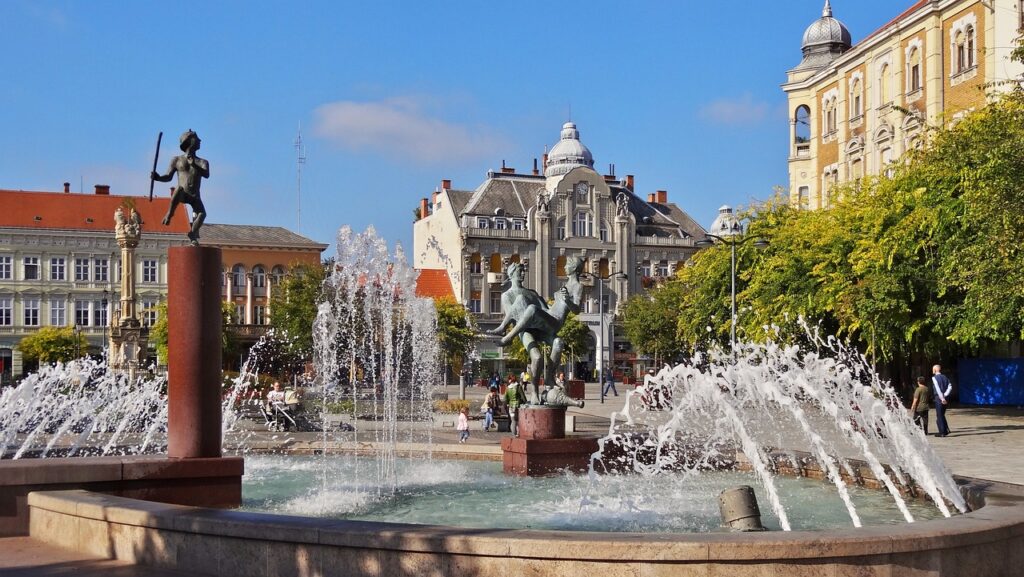The Hungarian Central Statistical Office publishes reports regularly about various topics, including the developments in Hungarian economy. Read a short summary of the latest reports to see how foreign-owned companies are doing in Hungary, and that Hungary has room for your business too.
For raw data, see the latest comprehensive report here, the latest issue of Hungary in Numbers here, and the relevant tables here.
Foreign-owned businesses generating added value in the EU
Businesses owned by foreign beneficiaries are prevalent all over the European Union. They generate over 25% of added value produced in the EU, and this proportion is as high as 33% if we consider only countries that joined the EU since 2004 (when Hungary joined too). About 55% of these corporations are governed from other EU countries, but about 45% from outside the EU. You can see that setting up a business in an EU member state as a third-country national is not just possible but almost commonplace.
Foreign-owned companies in Hungary
The same is true for Hungary, where company setup takes just 4-5 business days, regardless the nationality of the owner. Companies with foreign beneficiaries made up about 2-3% of all businesses over the last 15 years; their rate in 2020 was 2.3% with about 15,200 out of the total 674,000. (In 2021, the number of active businesses got an impressive jolt when pandemic related restrictions started to relax and reached 892,000, but we have no data about how much of that is foreign-owned).
These companies produce about 50% of the added value generated locally, and employ about 25% of the work force. Moreover, in 2020 they realized about 40% of all investment in tangible goods.
The ratio of beneficiaries with a seat in the EU or in a third country was 65:35 in 2020, the same as in 2008. However, this is a result of a drop right after Brexit, when companies with a British owner were reclassified as belonging to a third-country owner overnight.
Companies big and small
As you have probably guessed based on the share of foreign-owned companies from added value creation and investment, most large enterprises in Hungary are foreign-owned, meaning over 70% of companies that have more than 250 employees. The smaller the size of the business, the smaller the rate of foreign owners. However, there are plenty of small and medium-sized companies in Hungary that have foreign owners, and we proud ourselves in providing relevant assistance from company formation throughout their entire operation.
Mind you, the overwhelming majority (99%) of businesses in Hungary are small or medium-sized. They employ about 69% of the Hungarian work force, while producing about 47% of added value generated in Hungary, and realizing about 37% of investments.
Regarding the Hungarian work force: the term includes foreign workers as well. Currently, there are 4.69 million people working in employment in Hungary, while last year 85,000 third-country nationals requested Hungarian residency based on employment. At the same time, there are still 50,000 workers missing from the Hungarian economy, so bringing talent to Hungary, meaning employees you already know and trust, and who already possess the knowledge required for your business operation is more than reasonable. In line with this, getting a work permit in Hungary is relatively straightforward compared to other EU member states, and the procedure takes about 70 days.
Industries and technology
Whether we consider added value generation or production value, foreign-owned companies are the biggest players in Hungary in the processing industry, in information & communication, and in energy. Foreign-owned businesses also tend to use more advanced technology than domestic ones, making it easier for them to stand out in the market.
If we consider the number of foreign affiliates, the top ten divisions steadily include real estate activities and wholesale trade: about 20% of foreign-owned companies are involved in these. Retail has a steady third place with about 10% of all businesses. Usually management consultancy, IT related services and food & beverage services come next, but there share is normally under 5% already.
Pandemic related developments
During the pandemic, despite the various negative effects, added value generated in Hungary increased by 1% compared to previous years. Hospitality and logistics suffered greatly, as well as construction. At the same time, real estate related activities, wholesale and retail trade, the processing industry, and also scientific and technical activities managed to grow significantly.
In 2021, investments received new momentum, which slowed down in 2022, but still remained positive. Industrial production recovered relatively quickly after the standstills of 2020, and surpassed the levels before 2020. The same is true for constructions as well. The turnover of hospitality in 2022 was well over the 2021 levels, but still below 2019 levels.
Find your niche in the EU market in Hungary
From this you can see that foreign-owned companies are a pillar of Hungarian economy. They bring investment, advanced technology, and special know-how to Hungary, while providing employment to a significant portion of the local work force – which includes foreign employees brought in to boost productivity. Under such circumstances, you can also find your niche in the Hungarian market, and set up a business that can establish your success both in Hungary and in the EU.
The Helpers Team has more than 15 years of experience providing business assistance to foreigners moving to Hungary. Whether you need with company formation, accounting, getting residency for yourself, your family members, and your employees, or any other administrative matter, you can count on our expertise.
Was this article interesting? Follow us on Facebook and never miss an update.

